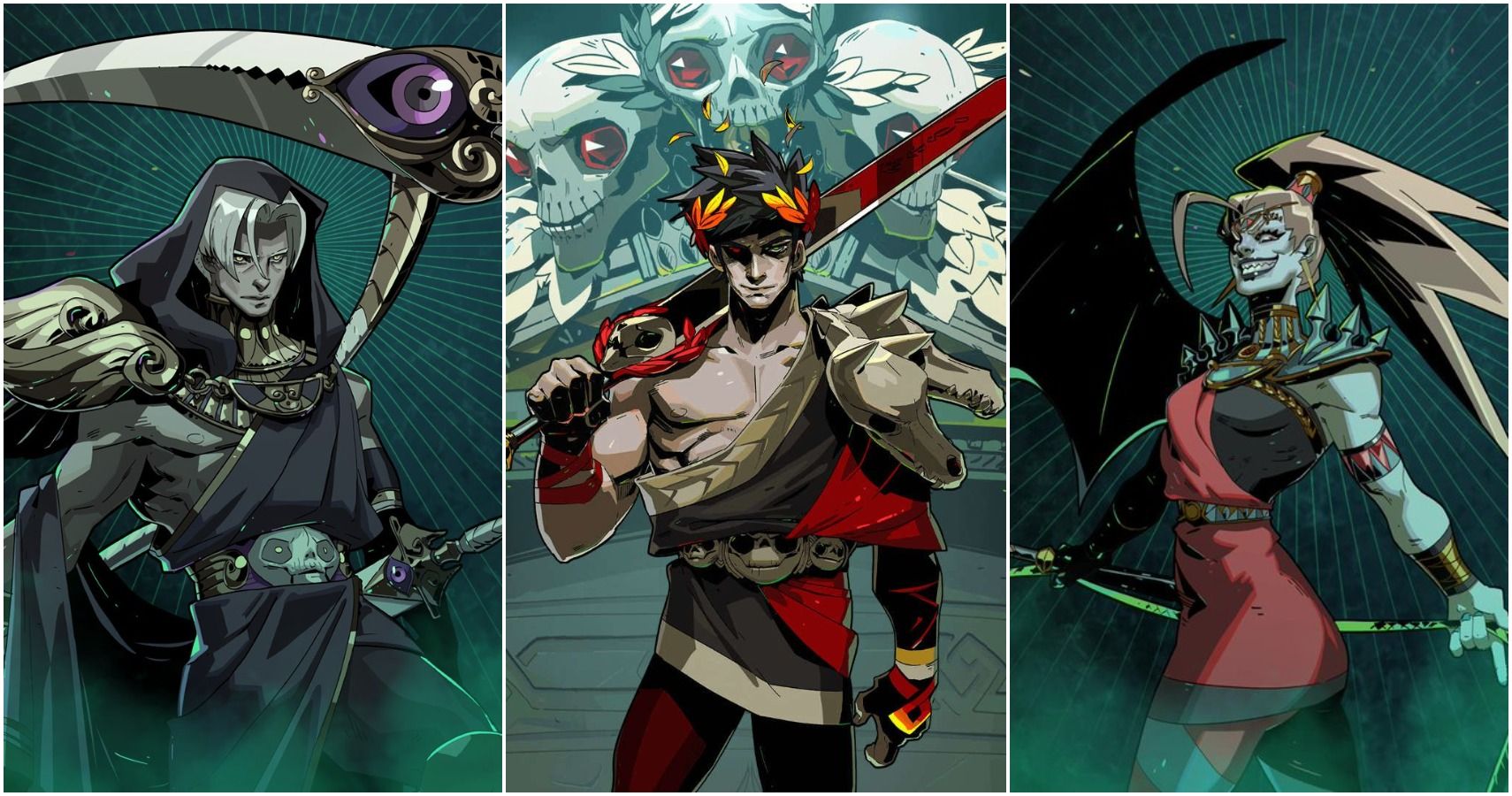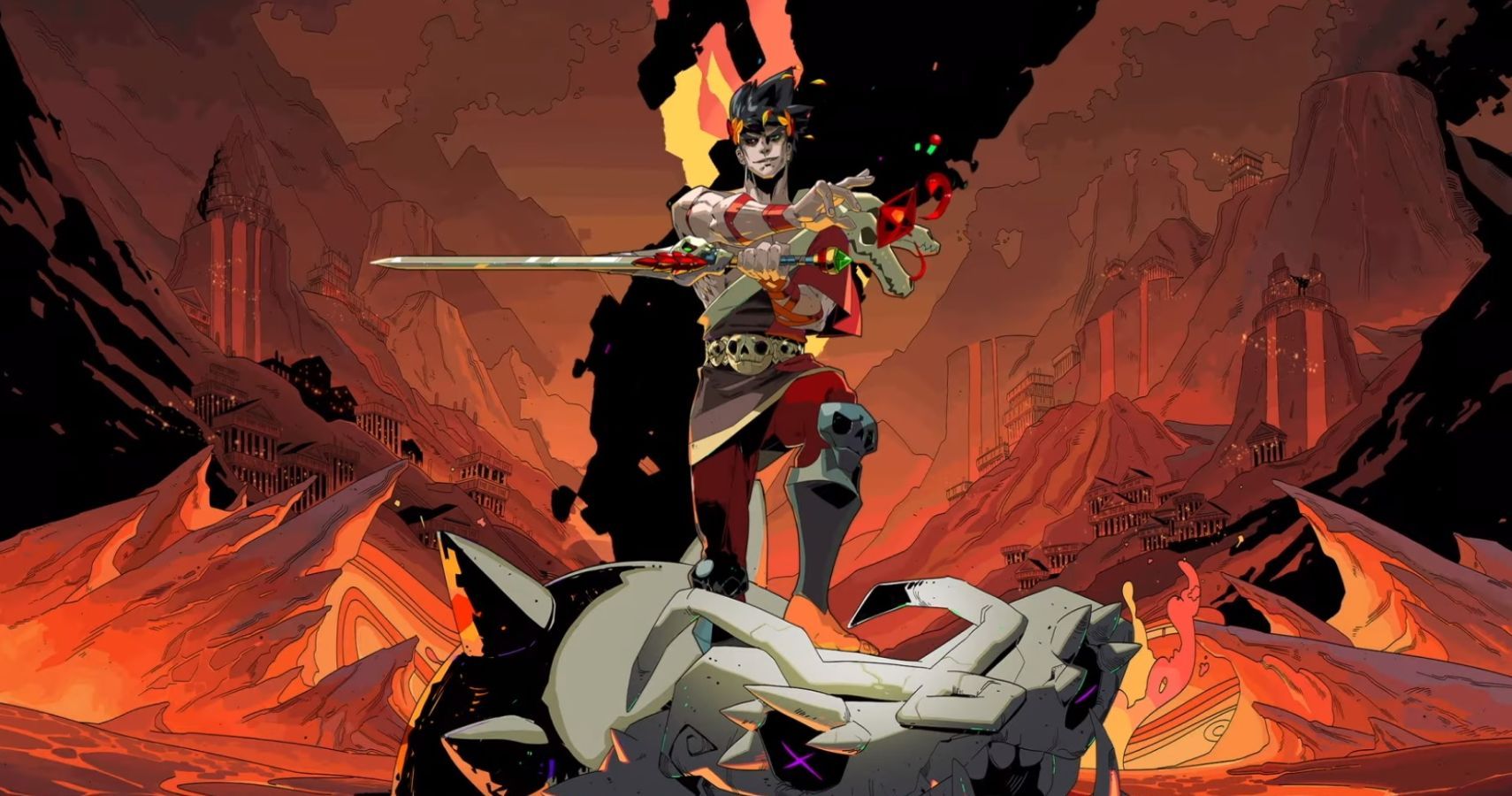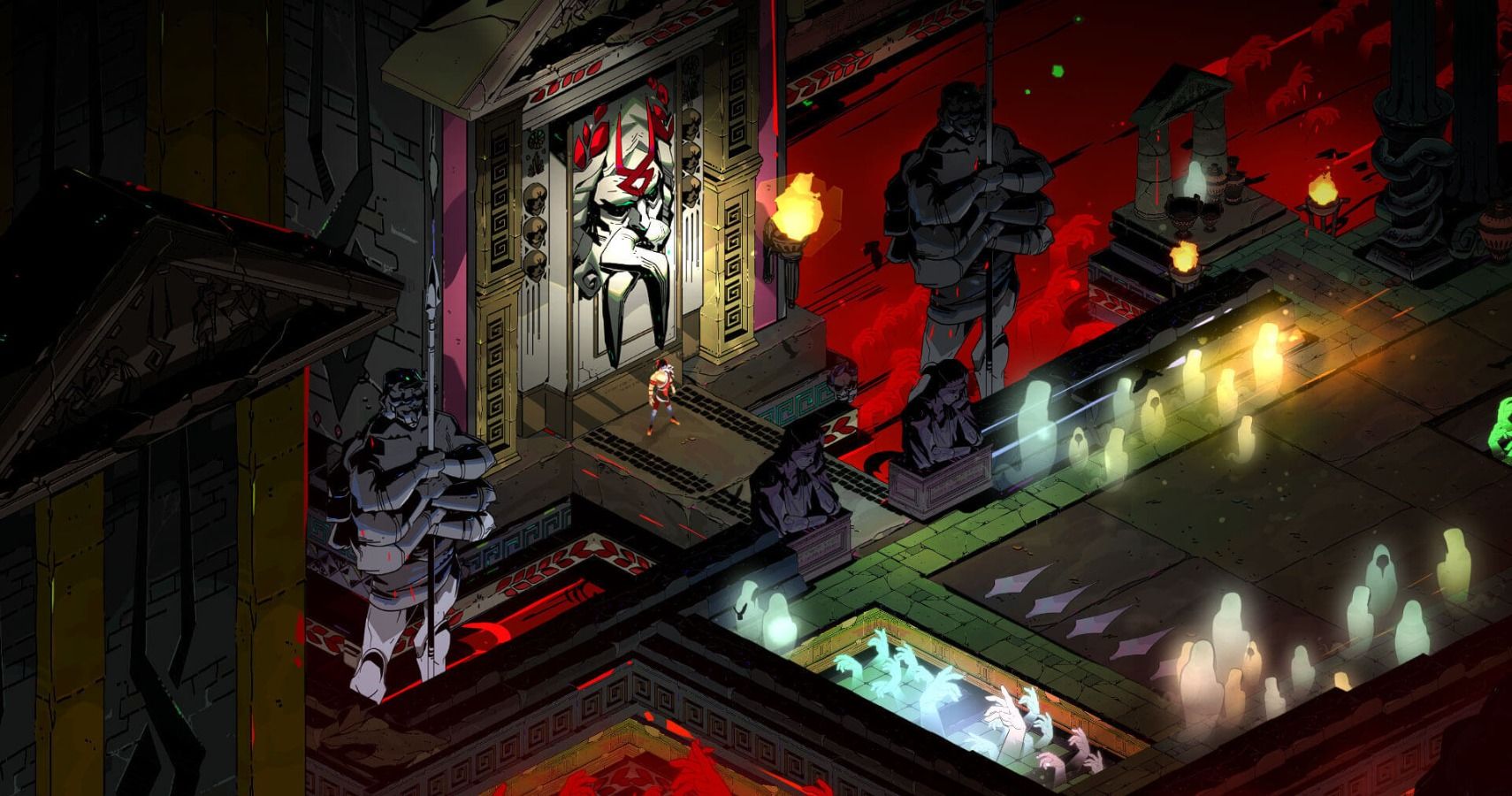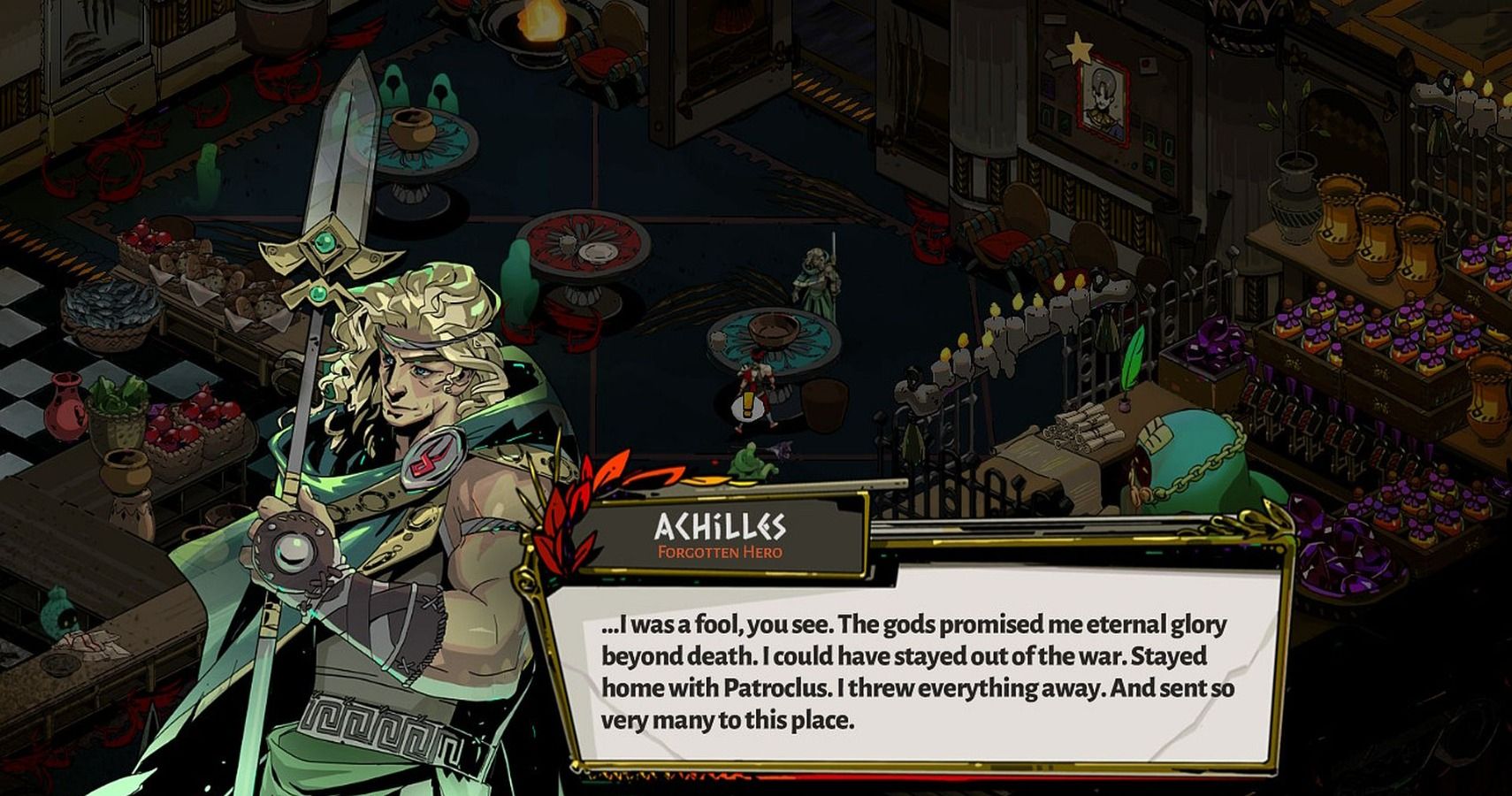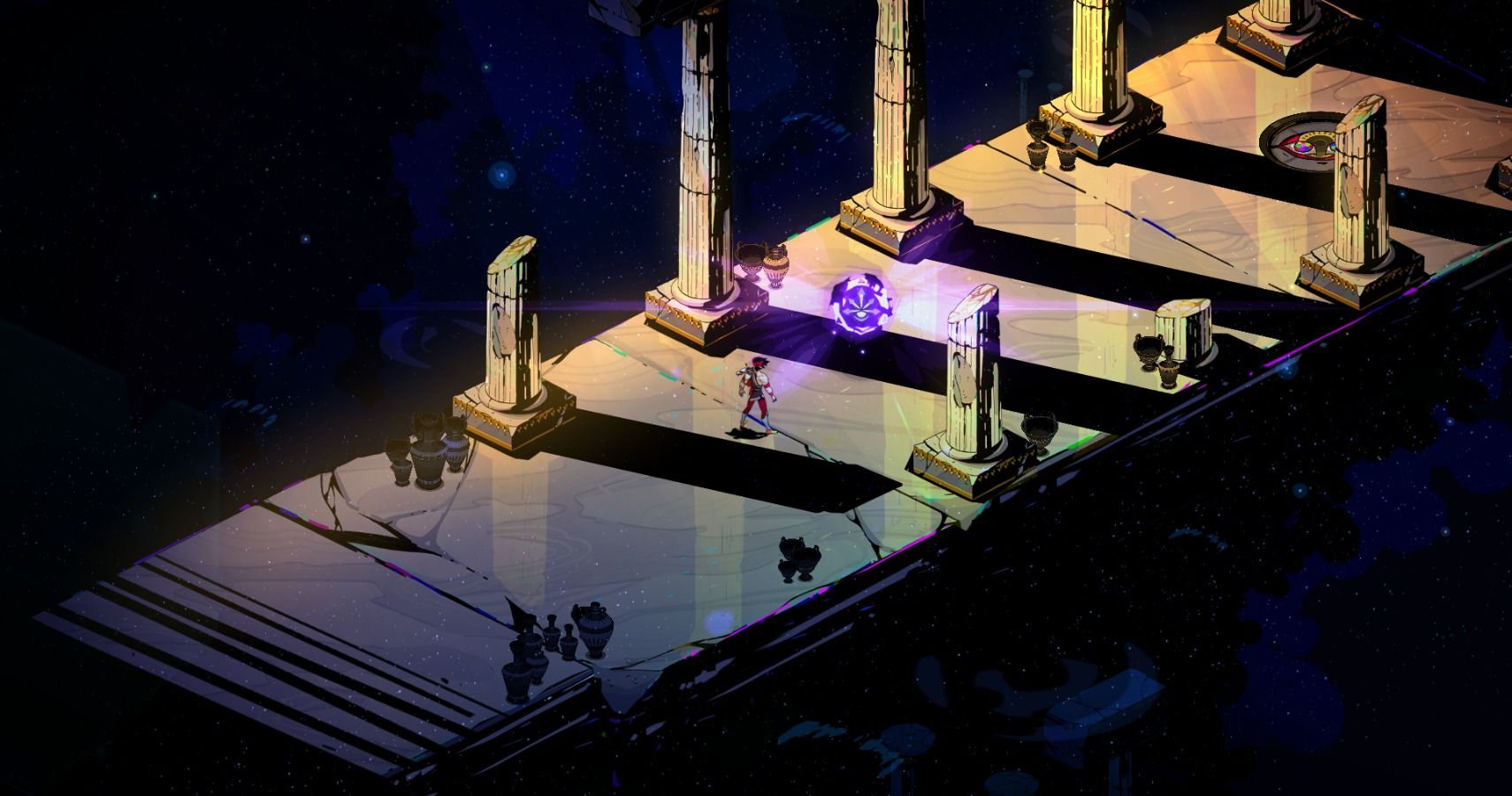Supergiant Games has spent years crafting a library of beloved titles, ranging from the spellbinding Bastion to the melancholic Transistor, but few have reached blockbuster status. This all changed with Hades, a roguelike that reimagines the Greek pantheon as a selection of charming, sexy, and gorgeously presented characters, each of whom have their own deep and alluring stories to tell.
I recently caught up with Greg Kasavin, the creative director and lead writer of Hades about the game’s success in the wake of several BAFTA nominations. To him, the journey Hades continues to travel on is something the team is “still absorbing.”
“I’m at a loss for words trying to describe it,” Kasavin tells me, a smile beaming across his face. “It’s amazing, and it’s strange as well - it almost feels like an out of body experience at times. We’ve been really, really fortunate to have made several well-regarded games prior to Hades, and the reception to those games grounded our expectations for Hades.”
Fortunately for Supergiant, Hades was poised to break every record the studio has set for itself in recent years. “We had high hopes, and were crossing our fingers for things like the Nintendo Switch launch, which was new,” Kasavin continues. “But still, I don’t think any of us expected it would surpass the success of our previous games to such a significant degree, in every measurable way.”
Kasavin says he’s a “big believer in luck and the fates” and how you can control the creation of something, but never the context in which it exists. “Hades just struck a chord with people and seemed to happen at the right time and the right place for a lot of people, and we’re really grateful it resonated in the way that it did.”
Of course, Hades isn’t based on original characters, but illustrious gods and other icons who have occupied the Greek pantheon for centuries. Despite this, Supergiant’s adaptation of such personalities has resulted in endless pieces of fanart and expansions of the lore in comics, fanfics, and beyond. It’s nothing like I’ve ever seen, and Kasavin feels the same way.
“It’s kind of like an indirect form of praise when we see fan creations of Hades, or any of our games for that matter,” Kasavin says. “It suggests that the work sparked these players’ imaginations in this way, and inspired them to where they wanted to create something themselves. It’s right on our website, we want to create games that spark a player’s imagination, and what better proof is there than that?”
As for Supergiant’s take on Greek myth, Kasavin tells me he hadn’t even heard of Zagreus before work on the project started. “Characters like Nyx, Zagreus, Hypnos, and Thanatos are not nearly as well known,” he explains. “I had never even heard of Zagreus, in fact, prior to this project, even though I had been interested in this stuff since I was a little kid.”
The joy in making Hades comes from shining a spotlight on ancient figures who might have gone unnoticed before, and giving the audience a way to embrace them as their own. “I love that we have played a little part in helping spread the word about these wonderful characters in this pantheon,” Kasavin says. “We’re still talking about Greek myth thousands of years later, because different artists and authors find new ways to interpret these characters. I love the idea that we might be working in a long tradition here.”
Hades also approaches the Greek pantheon in a more traditional manner than games like God of War or Spartan Total Warrior. Specifically, many of characters are queer-coded in a way that games of a similar ilk haven’t achieved before. Kasavin said this was a deliberate choice, with the original stories acting as the team’s main source of inspiration.
“The biggest inspiration for Hades was Classical mythology, rather than more modern adaptations of it, which may have more of a tendency to omit aspects of the ancient myth in this way,” Kasavin explains. “The Ancient Greeks, in some respects, are more progressive as a society with some of their views than we are today. We wanted to express that in the game, which has this almost anachronistic setting in this strange underworld.”
Bigotry over such things just wasn’t present in the underworld, as Kasavin makes clear: “They don’t have the same social taboos or hang-ups which might exist in society today, and they have a complex understanding of love and just accept that love at face value. It’s just something they wouldn’t think to question, and we did that both to be faithful to Classic mythology and because when you create a fantasy setting, it’s an opportunity to portray a world with different values than the one that exists today.”
Zagreus was developed as a bisexual main character, and this bleeds through his character and the way he interacts with gods across the gender spectrum. It’s heartwarming to see, and fits perfectly with the core identity Hades hopes to convey. “Hades is a deceptively light-hearted game, so that players ultimately come to enjoy being in this underworld despite their preconceptions,” Kasavin says. “And part of that means being surrounded by characters who feel genuine affection for each other in all sorts of different ways.”
Supergiant’s pitch for Hades was a “narrative roguelike” that would act as a new approach to the genre, and a game that would make the player feel rewarded despite constant failure. “The game structure where you die and start over again, it just seemed like a very compelling constraint on storytelling,” Kasavin explains. “Your knowledge of the game world is shared with Zagreus, right, so you'll both be like, ‘Oh, it’s this boss again,’ and we really wanted to harmonise the player experience with the narrative experience.”
As opposed to other infamously difficult games in this genre like The Binding of Isaac, Supergiant wanted players to welcome the idea of death. “We were interested in alleviating the frustration of death, and making that almost an experience that you might look forward to,” Kasavin says. “You didn’t die because you’re bad, you died because that’s just how the game works.” As someone who has often bounced off the genre, having a positive incentive to embrace my own failure made Hades far more enjoyable to play, learn, and ultimately master.
After talking about serious storytelling and the success of Hades, I couldn’t help but ask Kasavin if he’d love to see Zagreus appear in Super Smash Bros. Ultimate. “Yes! Of course, read nothing into this whatsoever,” Kasavin laughs. “On a personal level, I think that would be amazing. Smash does such a great job of adapting characters so faithfully, sometimes even more faithfully from the games where those characters come from.
“I’m a big NEO-GEO fighting game fan and they brought in Terry Bogard. So yes, I think they would do an incredible job of it, but it’s one of those things since I’m sure they have a very long list!” Giving the absurd additions to Smash in recent years, anything is possible.
The BAFTA GamIng Awards will take place on Thursday, March 25 at 7PM GMT, and Supergiant Games’ Hades is nominated for EE Game of the Year, Artistic Achievement, Game Design, Music, Narrative, Original Property, and Best Performer in a Supporting Role. Chances are it will be going home with some gold in its pockets. You can watch the awards for yourself here.
Hades is currently available on PC and Nintendo Switch. PlayStation and Xbox versions of the roguelike are yet to be announced, but we imagine they'll rear their heads before 2021 is out.

